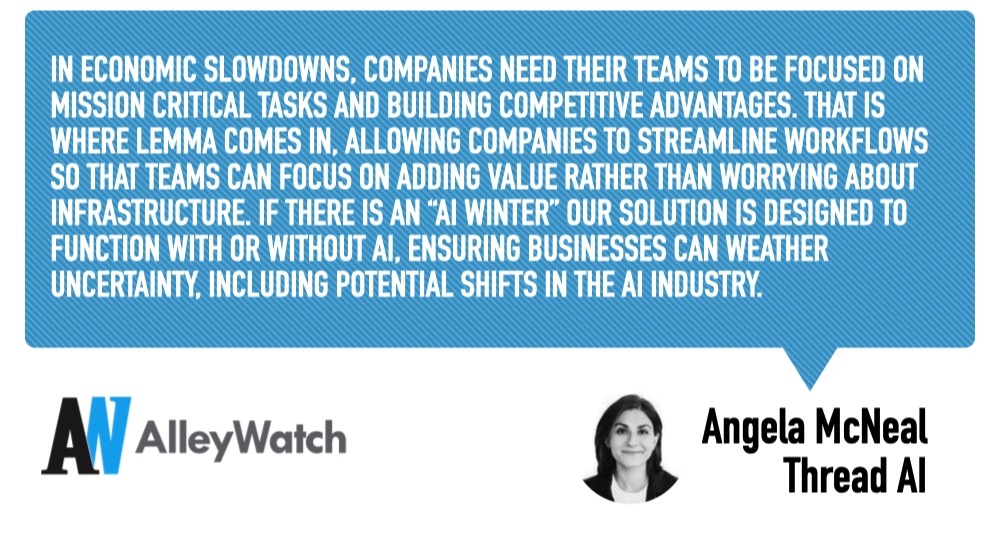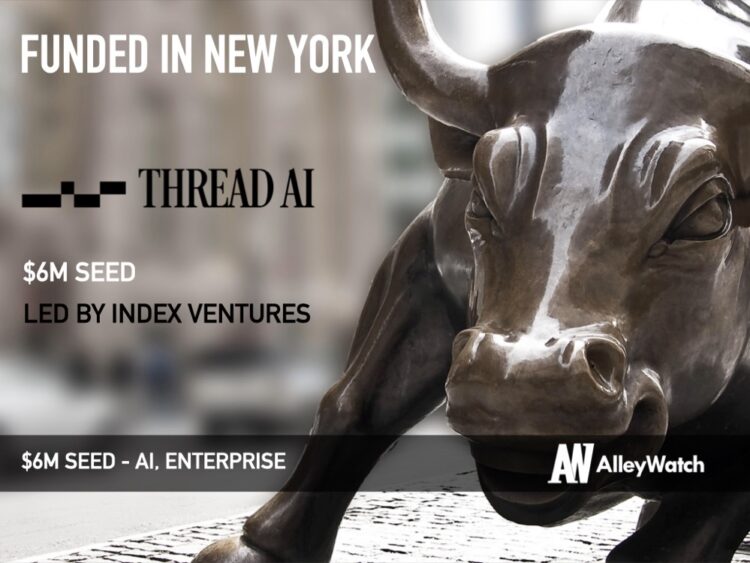Companies are increasingly recognizing the transformative potential of artificial intelligence and are seeking to integrate it into various aspects of their operations. However, the adoption process is often hindered by a complex array of challenges, including insufficient in-house expertise, concerns over costs and return on investment, data management issues, integration complexities, and uncertainties surrounding ethical and regulatory compliance. Addressing these concerns, Thread AI has developed Lemma, a composable AI orchestration platform designed to simplify the process of designing, implementing, and managing AI workflows. The average company utilizes over 100 different applications, raising significant concerns about the need for costly, time-consuming custom integrations and potential data vulnerabilities. Lemma works seamlessly across various systems, APIs, applications, and AI models, effectively creating a scalable infrastructure with robust guardrails to ensure data security. Having recently emerged from stealth mode, Lemma has already demonstrated its versatility and effectiveness across a range of industries, including the defense sector, energy, and media.
AlleyWatch caught up with Thread AI CEO and Cofounder Angela McNeal to learn more about the business, the company’s strategic plans, recent round of funding, and much, much more…
Who were your investors and how much did you raise?
We have raised $6M in a Seed funding round. The round was led by Index Ventures, with additional participation from Greycroft and angel investors, including Datadog CEO Olivier Pomel, former Roblox CTO Dan Sturman, and Homebrew.
Tell us about the product or service that Thread AI offers and what inspired business?
We started Thread AI because we saw a huge gap in how enterprises were trying to adopt AI. Having led AI product and engineering at Palantir, we’ve seen firsthand the challenges companies face when they try to implement AI workflows at scale. That’s why we built Lemma—our composable AI infrastructure platform. Lemma makes it easy for businesses to design, implement, and manage AI workflows by bringing together systems that don’t typically work well together. It helps companies automate critical workflows in a secure, scalable way, so they can focus on innovating without being bogged down by infrastructure headaches.
How is Thread AI different?
 What makes Thread AI unique is that we’ve built a platform, Lemma, that’s truly composable and that allows for seamless involvement of humans at critical moments in the process. A lot of solutions out there are either too rigid, solve only one problem, or they require companies to build everything from scratch – which is time-consuming and costly. Lemma allows customers to avoid these challenges by allowing enterprises to seamlessly integrate AI across their systems, no matter how fragmented or complex their infrastructure.
What makes Thread AI unique is that we’ve built a platform, Lemma, that’s truly composable and that allows for seamless involvement of humans at critical moments in the process. A lot of solutions out there are either too rigid, solve only one problem, or they require companies to build everything from scratch – which is time-consuming and costly. Lemma allows customers to avoid these challenges by allowing enterprises to seamlessly integrate AI across their systems, no matter how fragmented or complex their infrastructure.
We focus on making the infrastructure side of AI easier, so businesses can focus on innovating without worrying about how to stitch everything together. We have also built in important features like observability, security, and governance, so companies can deploy AI safely and at scale.
What market does Thread AI target and how big is it?
We are targeting enterprises across a wide range of industries that are looking to integrate AI into their operations but are struggling with fragmented systems and the complexity of AI workflows. Right now, we’re working with companies in luxury hospitality, digital marketing, public safety, financial services, in addition to sectors like defense and energy. The market for enterprise AI infrastructure is massive—AI adoption is accelerating, and companies are looking for ways to effectively deploy AI in a scalable, secure way. It’s a multi-billion dollar opportunity, and we’ve only scratched the surface of what’s possible.
How are you preparing for a potential economic slowdown?
In economic slowdowns, companies need their teams to be focused on mission-critical tasks and building competitive advantages. That is where Lemma comes in, allowing companies to streamline workflows so that teams can focus on adding value rather than worrying about infrastructure. If there is an “AI winter” our solution is designed to function with or without AI, ensuring businesses can weather uncertainty, including potential shifts in the AI industry.

What was the funding process like?
We were fortunate to have a clear vision for Thread AI and strong early traction, which resonated with investors. That said, it’s always a balancing act, finding the right partners who believe in your mission while also ensuring they bring the strategic value you need to grow. We had in-depth conversations with potential investors, and were really selective about who we brought on board. In the end, we were thrilled to partner with Index Ventures, Greycroft, and some incredible angels like Olivier Pomel from Datadog and Dan Sturman, formerly of Roblox.
What are the biggest challenges that you faced while raising capital?
One of the biggest challenges was finding the right investors who really understood AI infrastructure. We didn’t just want money, we needed strategic partners. That’s why partnering with Index Ventures was so key—they got our vision right away.
What factors about your business led your investors to write the check?
Our investors saw the massive market opportunity and the clear pain point we’re addressing. Enterprises are eager to adopt AI, but integrating it into their existing systems is a huge challenge. Lemma addresses this with a scalable, secure solution. They also recognized our team’s deep technical expertise and the strong early traction we had across different industries, which gave them confidence that we’re solving a real problem and positioned for growth.
What are the milestones you plan to achieve in the next six months?
In the next six months, we plan to aggressively hire and expand our team. We’re also focused on expanding our footprint in the public sector, where there’s increasing demand for AI workflow management.
What advice can you offer companies in New York that do not have a fresh injection of capital in the bank?
New Yorkers are aggressively pragmatic, so the best advice we can offer is to focus on solving pressing problems and proving value from minute one. It’s really about addressing the current environment whether that means improving efficiency, driving value, or cutting costs where necessary. Additionally, the tech scene in New York is exploding with meet-ups, interest groups, and communities forming around different industries and innovations. Take advantage of those opportunities to connect with potential leaders, customers or partners. Even without fresh capital NYC makes it easy to leverage the wealth of knowledge that is at your fingertips.
What’s your favorite fall destination in and around the city?
Hiking in the Catskills, especially when I can head north and stay at the Eastwind Hotel in Windham. You really can’t go wrong with any of the classic New York getaways, Mohonk is also a really cool spot.





